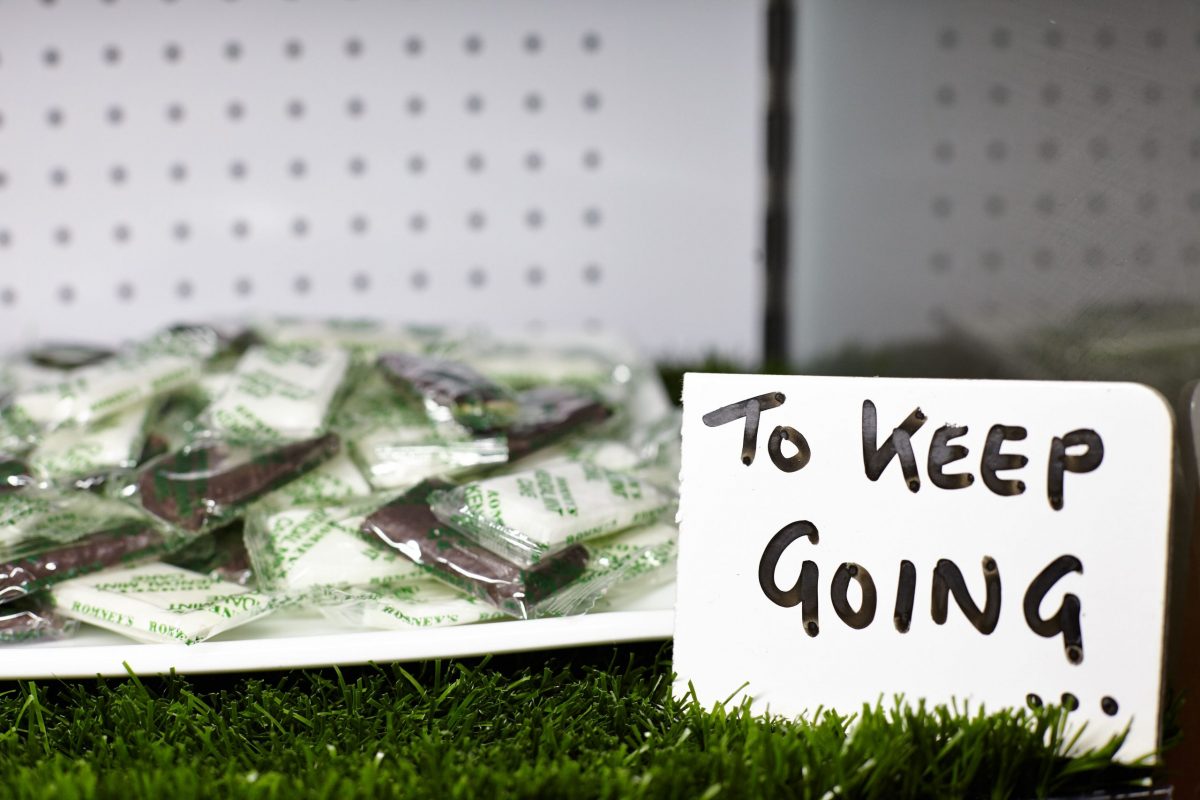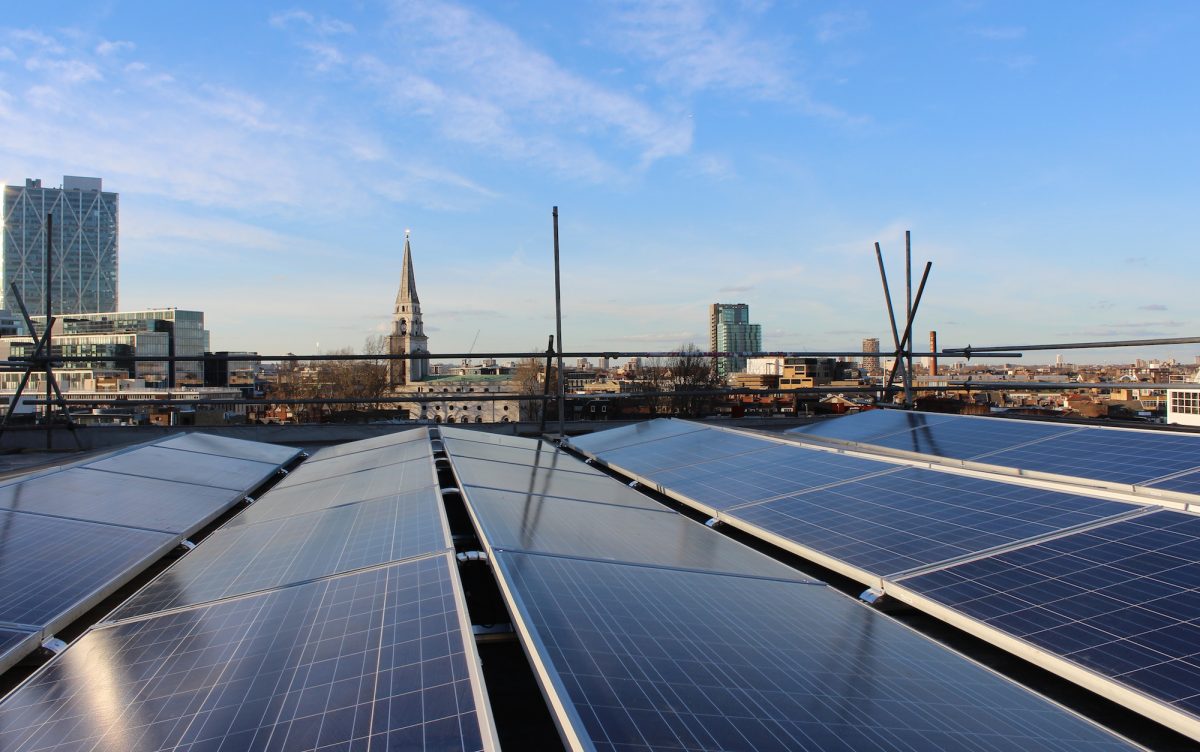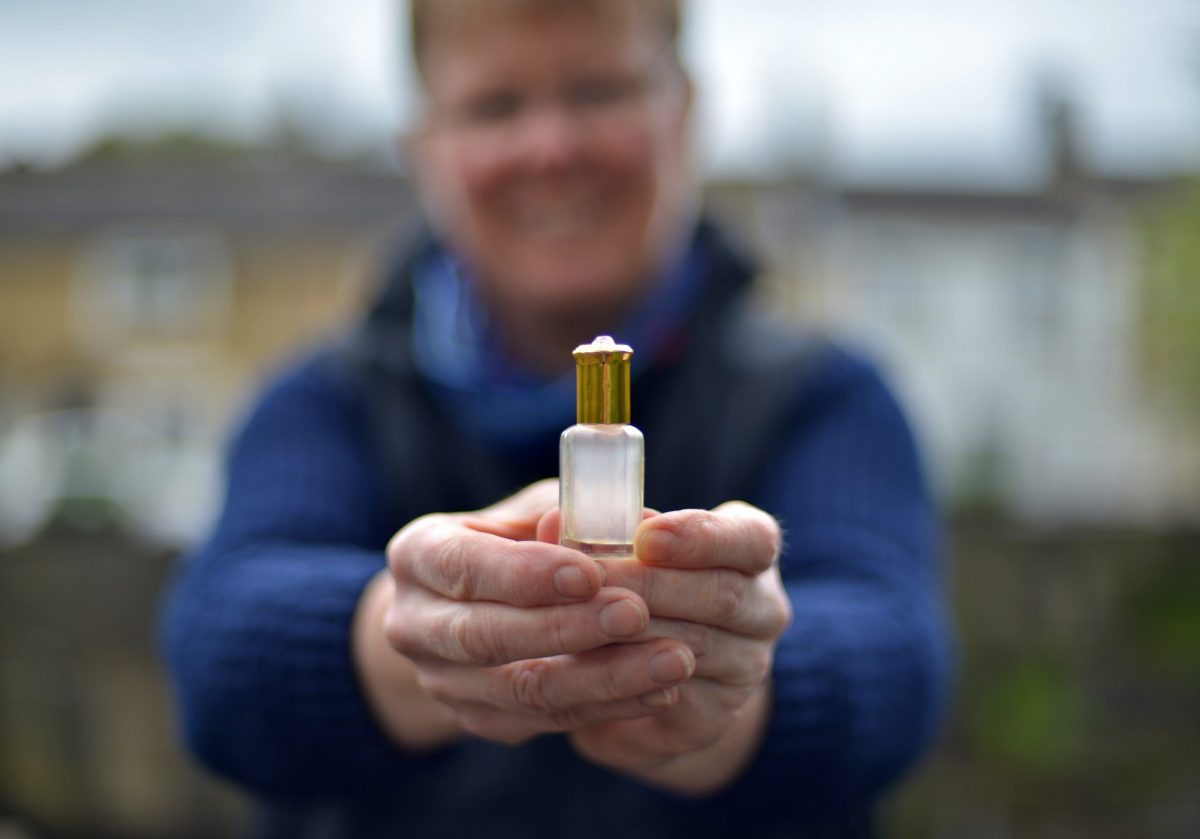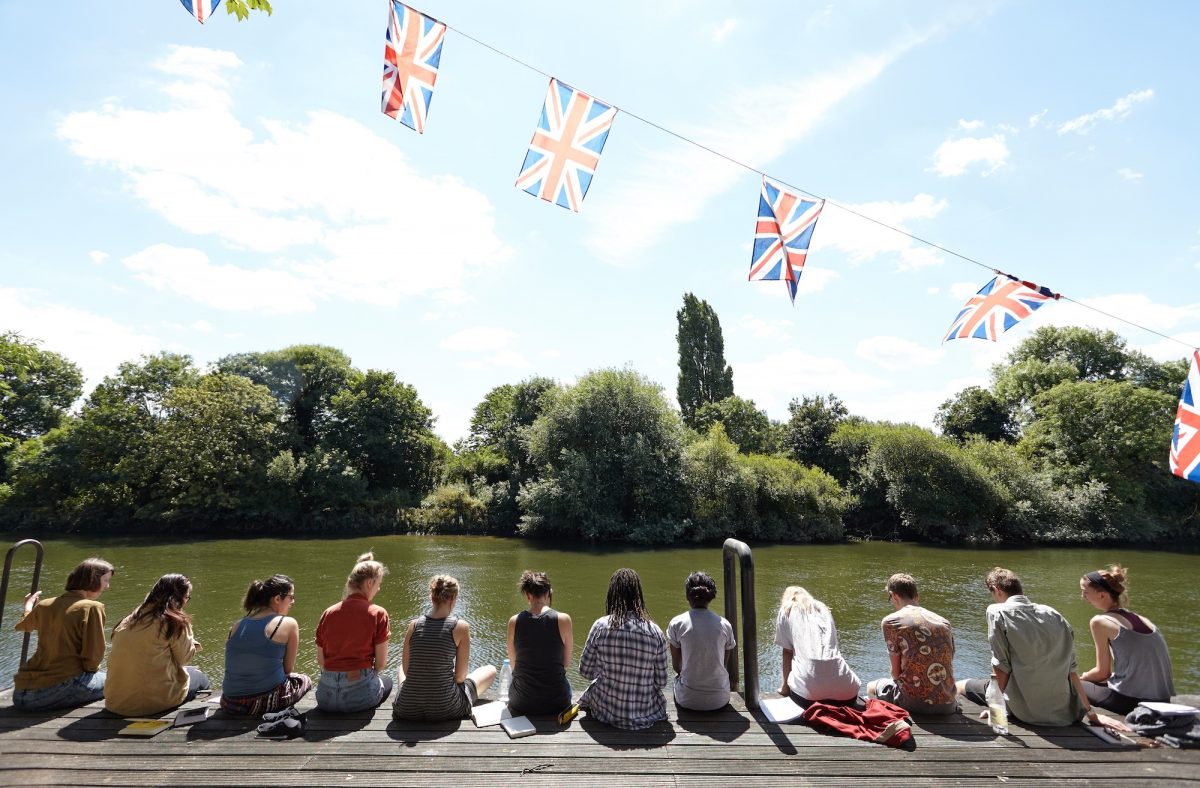Sustainability from the Inside Out

We are delighted to have been chosen by Julie’s Bicycle as a case study for our commitment to sustainability. This blog has been taken from the Julie’s Bicycle website.
Sustainability is at the core of Artsadmin’s values. This runs from the creation, presentation and touring of artists’ work, to how they run their building.
Artsadmin produces the work of artists across performance, dance, site-specific and interdisciplinary – in theatres, galleries, outdoor spaces and sites in the UK and internationally. They provide support and resources for artists at any stage of their career and have established a range of new opportunities for emerging and unfunded artists, which include mentoring schemes, school residencies and showcasing.
As founder members of the Imagine 2020 European climate change network, they also produce 2 Degrees Festival (a biennial environmental action festival), deliver a summer programme for artists who deal with sustainability, and commission a wide range of projects that address climate change. These commissions have included The Slow Boat conference in 2009, Michael Pinsky’s ‘Plunge in 2012 and Amy Sharrocks’ ‘Museum of Water’ in 2014.
In 2012, Artsadmin was a runner-up in the Art and Culture category of the Observer Ethical Awards. They are based in Toynbee Studios in East London, which underwent large renovation 2005-07 and was awarded the Green Tourism Gold Award in 2014.
Sustainability from the Inside Out
Environmental sustainability is seen as a priority and recognised as an integral part of Artsadmin, not only within the artistic direction of the work that they produce and commission, but also within their touring, their operations and their day to day office practice. There is strong leadership support towards environmental sustainability – at board and senior management level – and it is a standing agenda on their all staff weekly team meetings.
Their current Environmental Action Plan covers their artist projects, Toynbee Studios building and the way that they work. This is put into place by the ‘Green Team’, who work together to plan sustainable developments and engage the rest of the staff to achieve these ambitions.
To introduce everyone to their environmental policy, the Green Team developed an eco-handbook, which is shared with new and existing staff, as well other Toynbee Studio tenants. This handbook outlines Artsadmin’s environmental policy, which covers their attitudes towards energy, waste, water, paper use, travel, procurement, production, funding, cleaning, catering, audience impact, artistic direction and communication. It gives staff an overview of what the organisation is working towards, their achievements to date and their current objectives and targets.
Toynbee Studios
Sustainability was a key part of the redevelopment of Toynbee Studios, which reopened in 2007. Since then there has been a commitment to sustainability in capital activity. Throughout the building they provide information and resources to encourage good practice from staff, tenants, hires and visitors.

Solar Panels
In 2014, Artsadmin took major steps to reduce their environmental impact by installing 40 solar panels onto the roof of Toynbee Studios. This was a self-funded project that estimates covering its own costs by 2024. The panels were installed in an East West formation to maximise the best use of the space and to ensure the longevity of their daily activity. They have generated 9.369 MWh of energy since March 2014, which has resulted in a reduction of 5.337 tonnes of CO2 and a cash saving of £1,183.81. This measurement of energy reductions is communicated to the visitors through digital displays in the foyers of the building. Power and water is measured on a monthly basis, which has created high awareness of usage and has actively encouraged building users to ‘switch off’ when not needed. There has been a 50% reduction of water use between 2013 and 2015 entirely based on staff and tenant efforts.
Cafe and Studios
The cafe at Toynbee Studios serves predominantly vegetarian and organic food (plus Fairtrade where possible) and has been a great space to communicate and share Artsadmin’s efforts to be sustainable. External hires are advised in an introductory sheet to switch off lights and to be mindful of their water use . Each rehearsal studio has its own recycling bin.
Artistic Programming and Commissioning Work
Artsadmin is best known for a rich artistic programme that addresses environmental sustainability and activism. This was inspired by working alongside artists such as Platform, Ackroyd and Harvey and through attending Tipping Point events.
“Many of the artists we work with feel very strongly about this issue, so there is a natural convergence in our ideas and the projects the artists feel inspired to create.”
Judith Knight, Director, Artsadmin
In 2009 they held Slow Boat, a conference in partnership with the British Council, looking at touring internationally and asking questions around reducing our carbon emissions when presenting work overseas. Artsadmin also commissions a wide range of work that deeply engages audiences.
Michael Pinsky’s Plunge

Commissioned by Artsadmin and LIFT, Plunge was a public installation that encircled monuments in London with an illuminated blue line, showing the predicted sea level in the year 3012. At one level the viewer could extend an imaginary line between the monuments placing themselves deep below the water’s surface, at another level the illumination suggests a protective shell proposing that we still have chance to change this situation.
Amy Sharrocks’ Museum of Water

In 2013, Artsadmin presented Amy Sharrocks’ Museum of Water at 2 Degrees Festival. The museum is a collection of publicly donated water and their accompanying stories. The museum is an invitation to think about the importance of water and how it’s used. It addresses the accessibility issues of clean water across the world, water treatment, floods and even swimming pools. This collection currently holds 500 bottles, including water from a holy river in India, a 20 year-old (melted) snowman and a burst London water main.
Make Space Summer Programme

Run by artist Nic Green, Make Space is a summer programme for young people informed by the environment and social responsibility. For one month 12 young artists came together under the guidance of Nic to look at space and environment in a theoretical and philosophical way, using performance as a tool for learning. In 2014 Make Space took place at Hackney City Farm, where the group reflected on their own space in the context of the farm and one another.
“By engaging young people in the subject and exploring it through work developed from a locational stimulus we invite further artists to consider the environment as part of their ongoing practice.”
Judith Knight, Director, Artsadmin
A sharing of this process took place at the end of the project, where the group’s ideas were presented in the form of a teepee with communal eating, a bonfire and a cappella choral chants.
Collaborations
Artsadmin is actively engaged with other UK arts organisations who work in the area of art, activism and sustainability. This includes Cape Farewell, Julie’s Bicycle, Live Art Development Agency, Platform, Tipping Point and LIFT.
Their Catalyst Consortium with LADA and Home Live Art is concerned with ethical fundraising and policies. They recently hosted an event with Platform, ‘Take the Money and Run’, which addressed issues of ethical fundraising within the arts.
Imagine 2020 Network
Through Tipping Point 2008, nine European partners formed a group to programme work around climate change. In 2009 this became the Imagine 2020 network. The network spreads across nine European countries and brings together ten diverse, highly motivated and experienced cultural institutions: Kaaitheater, Brussels, Belgium as the project leader; Artsadmin, London, UK; Bunker, Ljubljana, Slovenia; Domino, Zagreb, Croatia; Kampnagel, Hamburg, Germany; Le Quai, Angers, France; LIFT, London, UK; New Theatre Institute of Latvia, Riga, Latvia; Rotterdamse Schouwburg, Rotterdam, Netherlands; Transforma, Torres Vedras, Portugal.
2 Degrees Festival

From Imagine 2020 network funding, Artsadmin has programmed the biennial 2 Degrees Festival.
This celebration of the arts, environment and activism encourages audiences to take action. The week-long programme includes events, workshops, talks, debates, performances and installations by international artists who are making cutting-edge responses to climate change. The festival aims to inspire ideas, connect communities and empower people to find and create solutions for a sustainable future.
2 Degrees Festival has taken place in 2009, 2011, 2013 and the next one will run from 1st – 7th June 2015 and features, amongst other projects, Steve Lambert’s Capitalism Works for Me! True/False, the Labofii, Brett Bloom and Natalie Jeremijenko’s TREExOFFICE.
Check out the programme here: 2degreesfestival.tumblr.com
2020 Summer Labs
Summer Labs are for young artists who want to focus their work on issues of sustainability and the environment. Each year a different Imagine 2020 European partner hosts a camp that provides a space for the artists to bring their own practice and skills to share and work collectively.
In 2014, the Imagine 2020 Summer Lab was hosted by Artsadmin at the Sustainability Centre in South Downs National Park.
What Does Artsadmin Think A Sustainable Sector Should Look Like?
“The arts are a really powerful tool with which to bring forward new ideas and influence social norms. But as well as talking about sustainability, promoting and making work about it, we need to make sure we are practicing what we are (and should be) preaching.”
Claire Burke, Admin Assistant and Green Champion
A sustainable sector would include the following:
- Recycling everything that can be recycled, having already made every effort possible to reuse or re-home an item.
- Divesting from fossil fuels, sourcing energy for cultural and rehearsal buildings from renewable sources and generating our own where possible. Also making sure any company schemes such as pension plans are invested environmentally and ethically.
- Banking with a bank that is investing environmentally and ethically.
- Ending oil sponsorship of the arts.
- Promoting cycling to work and using public transport before driving.
- Only flying when it is the only option.
- Offering discounts on tickets to audiences who travel by public transport.
- Removing exclusivity clauses from touring contracts.
- Attending conferences and meetings remotely via Skype
- Monitoring and minimising water use
- Acting sustainably in our marketing by miminising print waste, using FSC paper and environmentally friendly inks
And above all …commissioning and presenting more inspiring and optimistic work that engages audiences and inspires change.
What Advice Would Artsadmin Give?
- Make sure that the board and the leaders of the organisation are totally committed.
- Make it an issue that all staff are involved with and that everyone can feel part of it.
- Have a clear set of sustainability priorities and some practical solution plans that involve everyone, ie eco-handbook.
- Form a ‘Green Team’ to create the handbook, benchmark your targets and then push and communicate these efforts,
- Add ‘green’ to your staff meeting agenda, to keep the subject always present
- Keep updating your action plan of measures, be creative
The full blog post, including access to their relevant resources was originally available on the Julie’s Bicycle website, but has now been archived.
